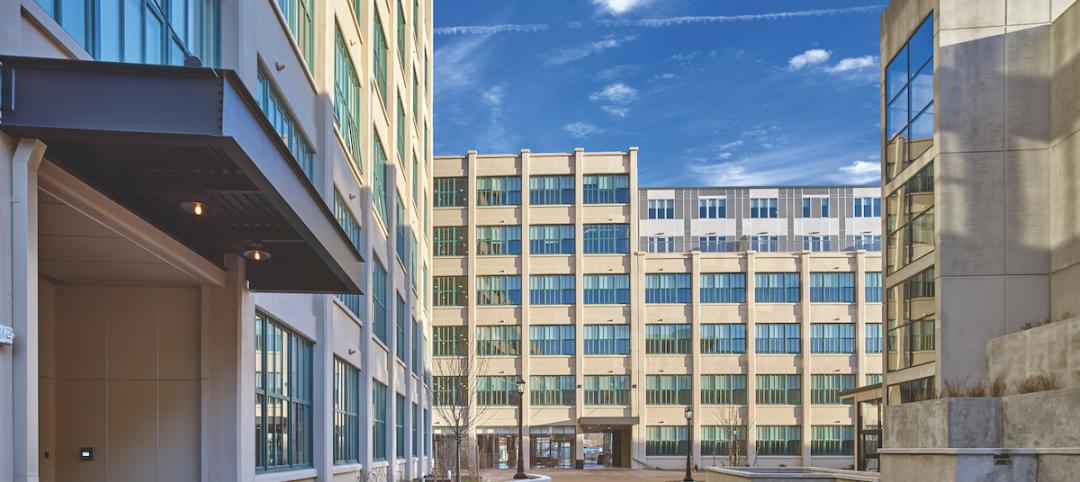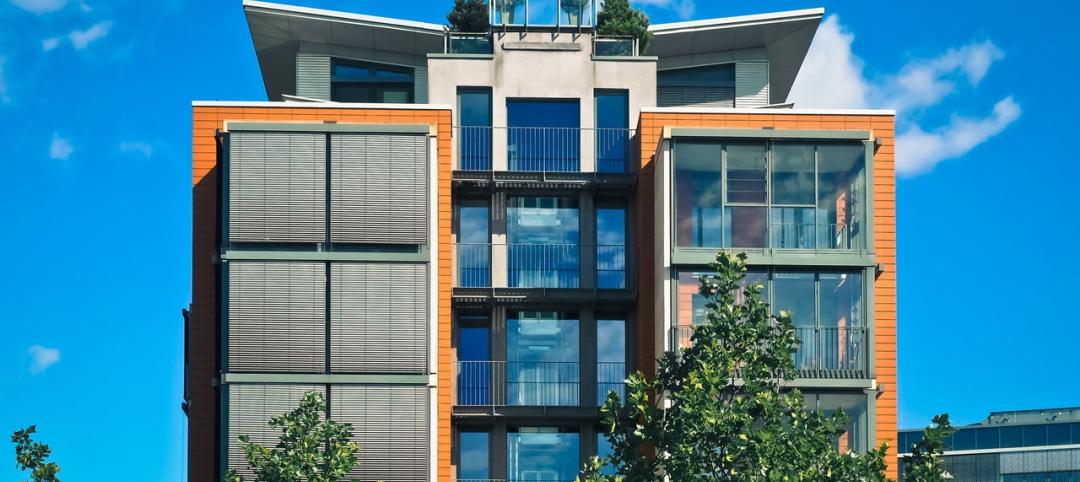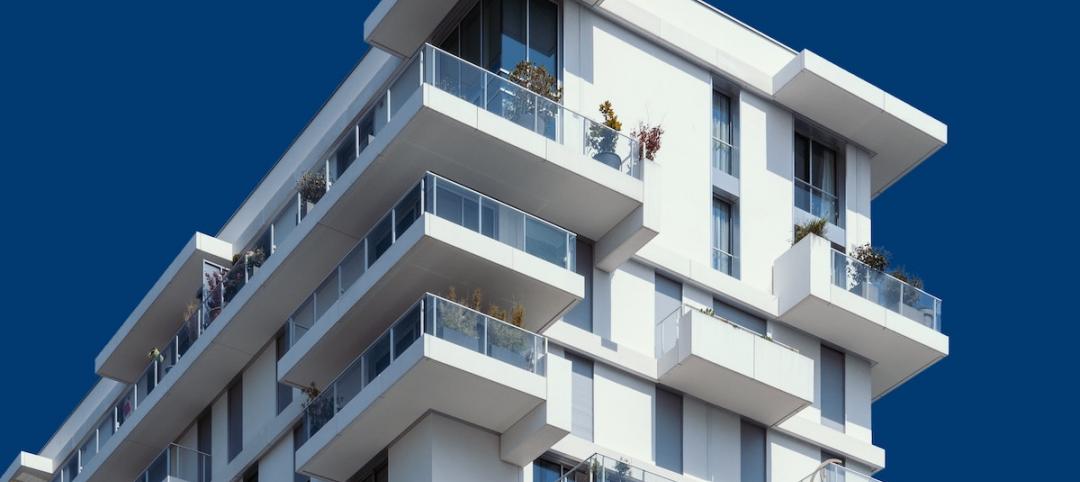Tankless water heaters have come a long way in the last 10 years or so. One-third of respondents (33.2%) to our exclusive 2019 Multifamily Design+Construction Amenities Survey said they had installed tankless water heaters in an apartment or condominium community in the previous 12-18 months.
Sales of tankless water heaters in the overall residential market—multifamily plus single-family—have jumped from 7-9% in recent memory to “14 or 15% this year,” according to Brian Fenske, Director of Commercial Sales for Navien, a tankless water heater and boiler manufacturer.
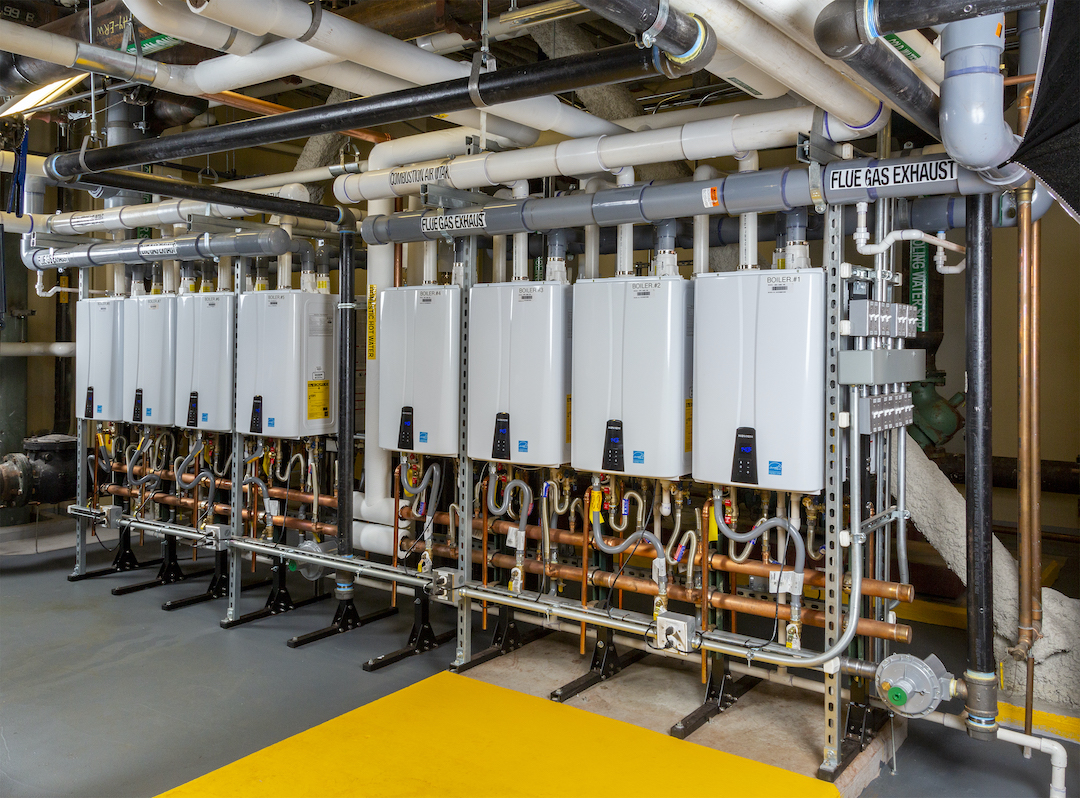 Navien NPE tankless water heaters "ganged" at West End Asteria Apartments, Boston. Photo: Navien Inc.
Navien NPE tankless water heaters "ganged" at West End Asteria Apartments, Boston. Photo: Navien Inc.
One particularly robust component of the multifamily market—new urban luxury high-rise properties—may already have swung over to tankless systems, according to Steve Straus, President of engineering firm Glumac. Five years ago, the tank-to-tankless ratio on Glumac-engineered luxury high-rises was about 80/20; today, it’s 50/50, Straus said. The pace of adoption in this sector could portend greater acceptance in the broader multifamily market.
This report is sponsored by: Navien Inc., www.navieninc.com
Despite these positive signs, many developers hold fast to the belief that tankless units can’t produce enough hot water to meet the needs of hundreds of apartment or condo dwellers. Having used tank models for years, they see no reason to switch to tankless. “Investors can be risk-adverse,” said Straus.
According to Navien’s Fenske, however, “those days are over.” Today’s tankless units can supply a steady stream of hot water indefinitely. Manufacturers have markedly improved tankless units, overcoming the perceived drawbacks and improving performance to the point where developers, operators, builders, and engineers should consider using them in multifamily projects.
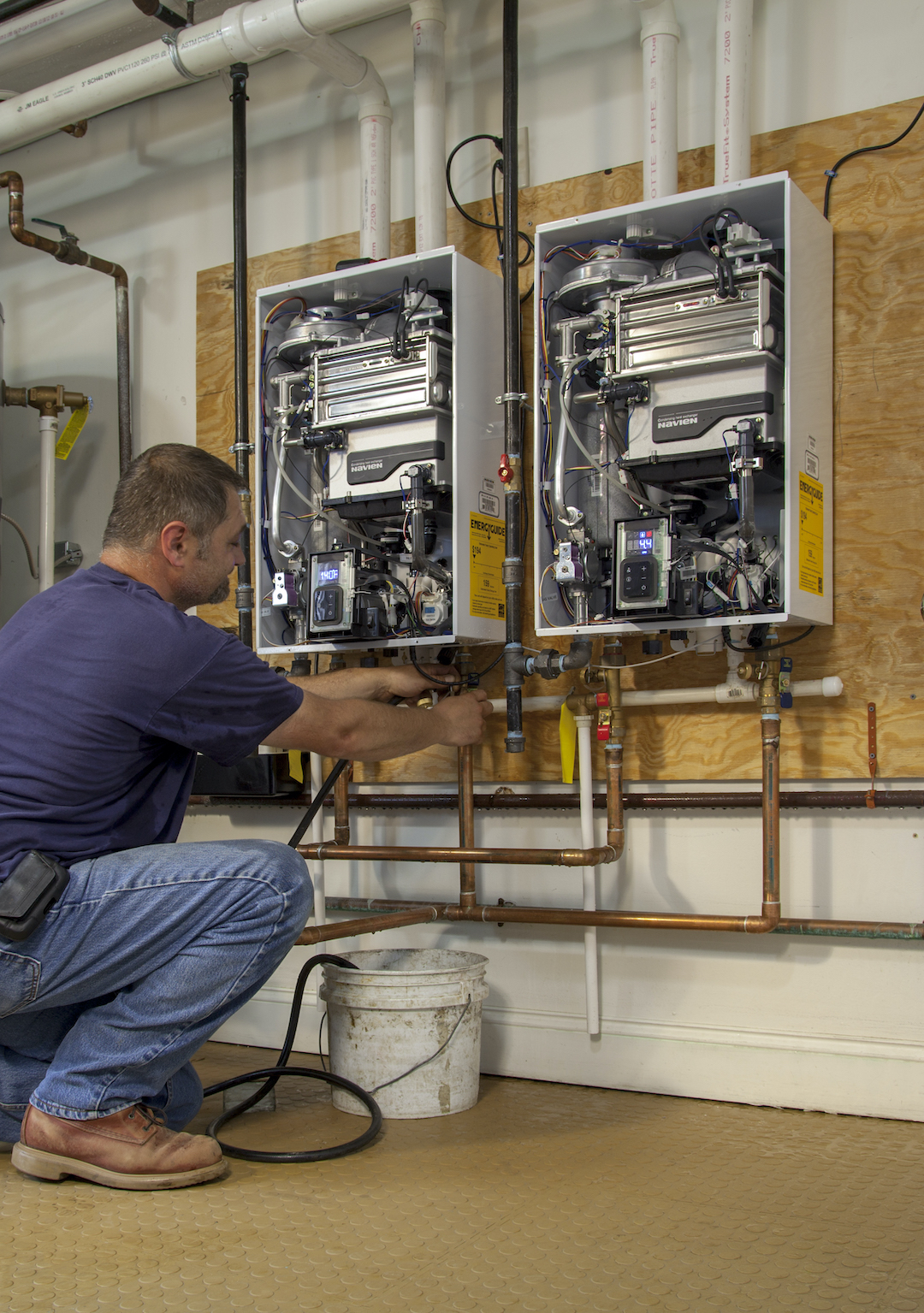 Navien tankless water heater being installed by Smith Plumbing & Heating, Nashua, N.H. Photo: Navien Inc.
Navien tankless water heater being installed by Smith Plumbing & Heating, Nashua, N.H. Photo: Navien Inc.
Tankless water heaters 101: START WITH A CAREFUL ANALYSIS OF ALL THE OPTIONS
The choice of water heaters should be preceded by a comprehensive analysis of all the options: tank vs. tankless, gas vs. electric, brand vs. brand, model vs. model. Let’s look at 12 factors your team should consider in evaluating tankless water heaters for your next multifamily project.
1. Tankless water heaters solve the capacity problem. The most important advantage of tankless systems, said Fenske, is that they provide an endless supply of hot water to your tenants and condominium owners. That’s because tankless systems instantaneously heat the water based on immediate demand, whereas tank systems can temporarily run out of hot water after a period of heavy use. One thing you don’t need is angry building occupants complaining about cold showers.
2. Tankless water heaters save space. Tankless units typically occupy 40–60% less space than comparable tank units, according to Fenske, who also conducts training, design, and product development for Navien. This is especially important since the latest energy code standards require beefier insulation jackets for new tank units, adding several inches to their girth.
Reducing the space needed for water heaters by a half or so is a significant benefit for multifamily developers, especially in large high-rise projects, said Glumac’s Straus. Ganging tankless water heaters in the basement could create more space for, say, a bigger dog washing room.
3. Tankless water heaters are easy to install and provide reliable hot water service. Tankless units can be ordered in pre-assembled rack systems that simplify installation. Centralized or zoned systems provide redundancy and reliability, and are often preferred for large multifamily buildings. “Our clients almost always want centralized systems,” said Straus. “When arranged in parallel, if one unit fails, others can take its place.”
Straus said his clients avoid using “dispersed systems.” “They don’t want the maintenance associated with servicing individual tankless heaters in every living unit,” he said.
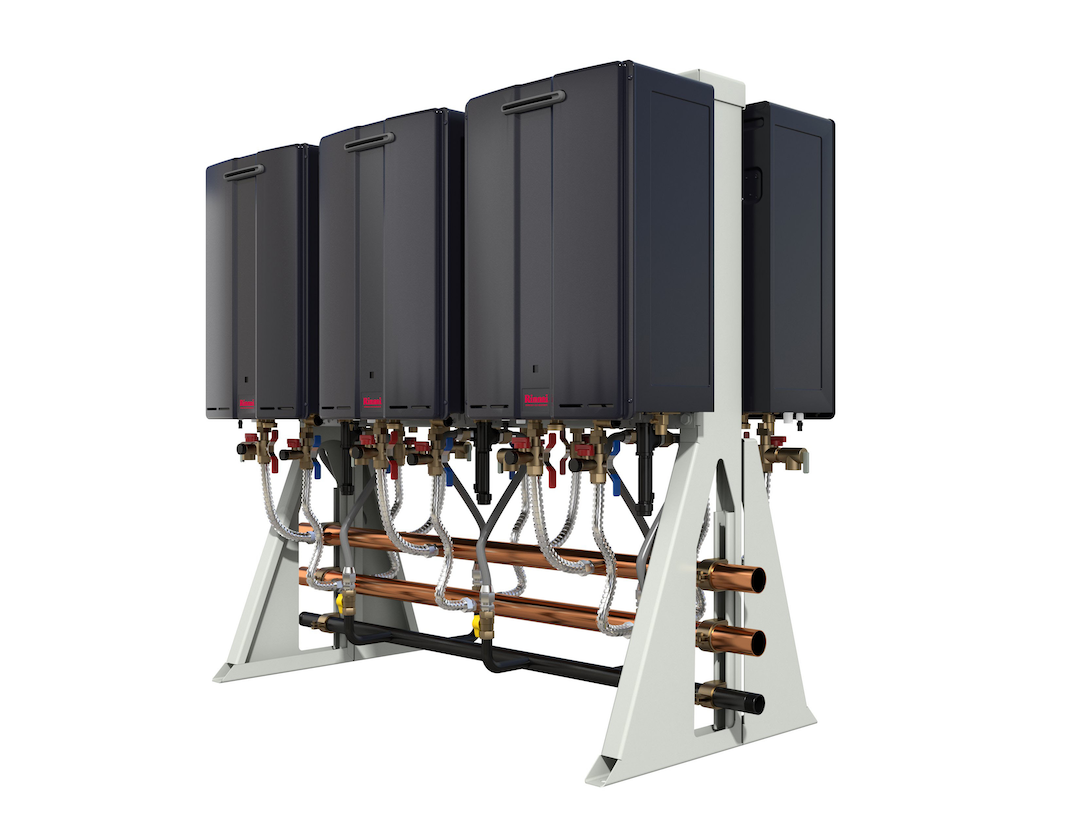 Rinnai tankless water heater in rack formation. Photo: Rinnai America Corp.
Rinnai tankless water heater in rack formation. Photo: Rinnai America Corp.
TANKLESS WATER HEATERS SAVE ENERGY
4. Tankless water heaters score high on energy efficiency. The U.S. Energy Department standard for measuring energy efficiency in similar types of water heaters is the uniform energy factor, or UEF. The higher the UEF, the more energy efficient the water heater.
According to Energy Star, gas tankless water heaters have a UEF of at least 0.87 to as high 0.97 for the most efficient gas units, known as condensing gas models, which use a second heat exchanger to heat water with the exhaust gas. Electric tankless water heaters have a UEF of 0.96 to 0.99, while the UEF of commercial tank water heaters can range from 0.80 to 0.90 according to Energy Star. (Note: The UEF rating does not take into account the cost of producing and delivering natural gas or electricity.)
5. Tankless heaters have a reasonable payback period. Tankless water heaters cost anywhere from 30-40% more up front vs. tank systems, although this premium comes down significantly—and can even disappear—when multiple (“ganged”) tankless installations are compared to multiple commercial tank and boiler combinations.
Tankless systems can save 15-25% on energy costs compared to tank systems, depending on the type, the brand, and specific product and model features. If your project is located in a service area with high utility rates, the payback period will be quicker. Your estimator, preconstruction expert, or MEP engineer needs to weigh all these variables to determine the anticipated payback periods for the various systems you may be considering.
“If you’re going to hold the property and you’re looking at cost of ownership over a longer payback period, tankless is going to be a better value for you in almost every situation,” said Ansley Houston, Senior Director of Commercial Business for Rinnai America Corp., manufacturer of gas tankless water heaters.
6. Tankless water heaters can contribute to your “green” marketing campaign. If you’re seeking a green certification, such as LEED, or promoting your use of Energy Star appliances, you’ll want to mention your tankless water heaters in your sales and marketing initiative.
“Developers in parts of the country where conservation is either mandated or valued by consumers can show what they’re doing to save energy and water,” said Julius Goodman, Marketing Head with Stiebel Eltron, a manufacturer of electric tankless models.
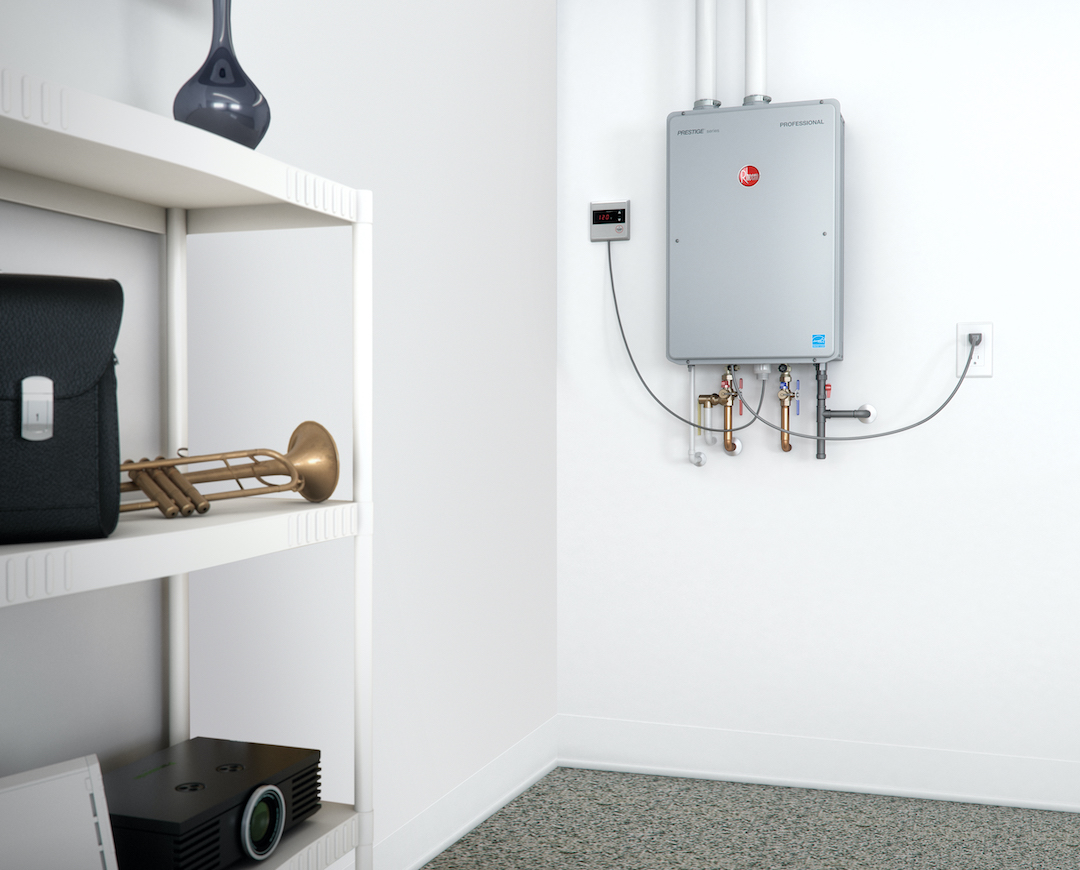 Rheem tankless water heater installed in individual unit. Photo: Rheem
Rheem tankless water heater installed in individual unit. Photo: Rheem
TANKLESS WATER HEATERS LAST MORE THAN 20 YEARS
7. Tankless water heaters have a long lifespan. According to the DOE (https://bit.ly/3b0jqO6), most tankless water heaters will last more than 20 years; comparable tank units average 10-15 years. That’s because tankless units don’t have the most common point of failure in tank units—the tank itself. Check the warranty for coverage of labor, parts, and the heat exchanger.
8. Tankless water heaters may soon be required by code. Tankless units may become a necessity, not a choice, as energy-efficiency codes become tougher. Glumac’s Straus noted that tank units with a low UEF (0.80 or less) may fail to meet more restrictive state or local energy codes in the near future.
9. Tankless systems are relatively easy to maintain. The maintenance needs of tankless water heaters depend largely on the quality of the water being fed into them. Hard water can leave mineral deposits on heat exchange elements. When hard water is the only alternative, install a water softening system. Tank water heaters, which store large volumes of water, are more susceptible to mineral buildup than tankless models.
One manufacturer, Navien, uses stainless steel heat exchangers that are more resistant to corrosion from minerals in the water than the more commonly used copper tubing.
ALSO SEE: Tankless water heaters improve water heating efficiency in an Indiana condo community
Polluted air and contaminated combustion also can be a problem in gas units, as air drawn in for combustion can leave deposits in the heat exchange chambers. Proper installation steps should be taken to assure clean combustion air for gas-fired appliances. Here, too, gas models with stainless steel heat exchangers will resist corrosion more effectively. For optimal operation the combustion elements should be cleaned during scheduled annual maintenance.
10. Gas tankless water heaters may earn utility rebates. Some gas utilities offer rebates for gas tankless units. Utility rebates for electric tankless water heaters are generally less available. Check with your local utility for current rebates.
11. Today’s tankless units are getting smarter and smarter. The latest tankless models have sensors that detect when demand fluctuates and send a signal to smart electronic controls that automatically “cascade” the number of units in operation, so that hot water supply keeps pace with demand. Manufacturers are adding Wi-Fi capability to many models that allow your operations staff to monitor and adjust the units remotely. Check with your supplier, as the technology is getting more sophisticated almost by the minute.
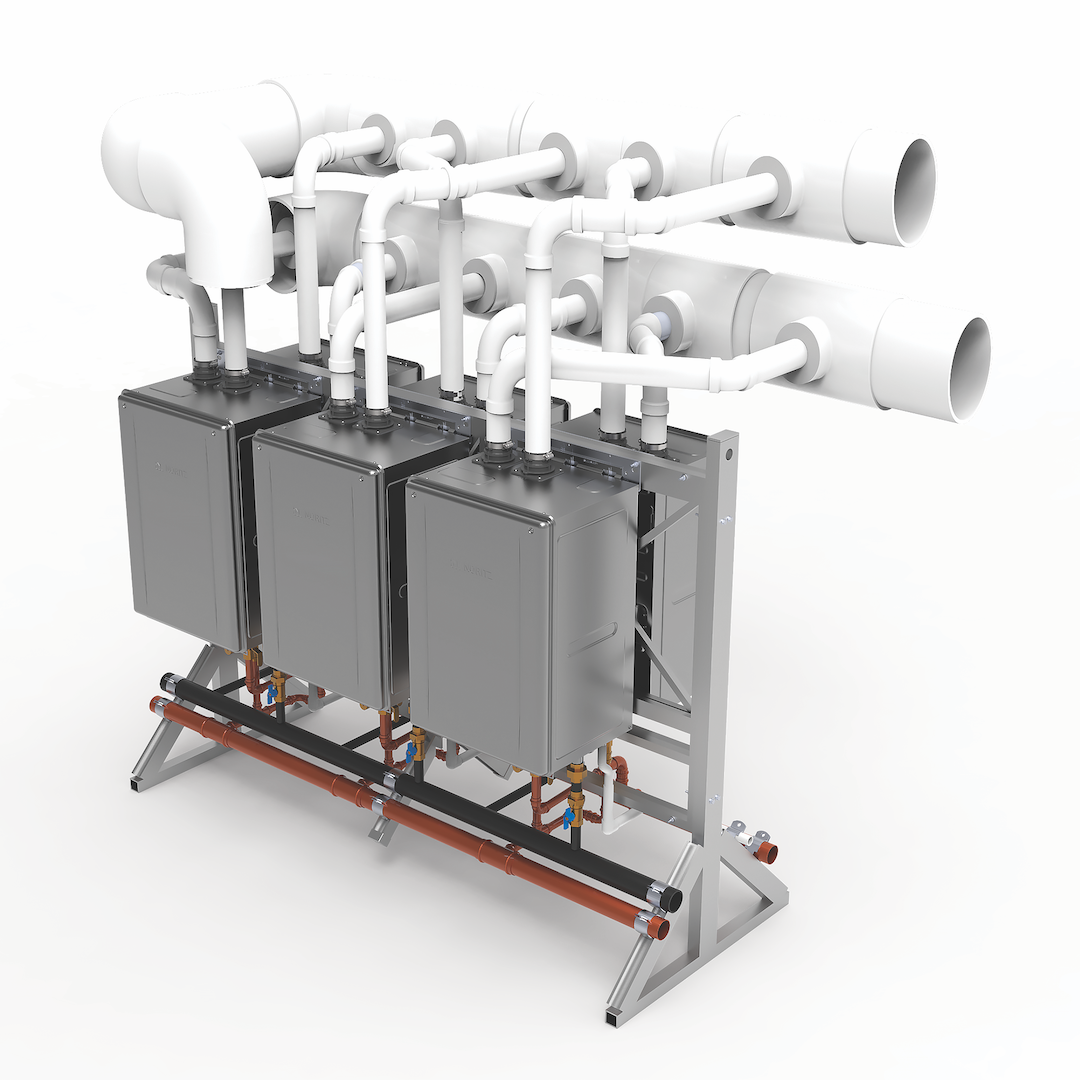 Noritz tankless water heater assembly. Photo: Noritz
Noritz tankless water heater assembly. Photo: Noritz
TANKLESS WATER HEATER SUPPLIERS CAN PROVIDE EXPERTISE
12. Work with your tankless water heater supplier. If you’re new to tankless systems—or just have a question—consult with the manufacturer or dealer, especially in the early stages of design, when important decisions are being made. They are eager to provide technical advice to make your project successful.
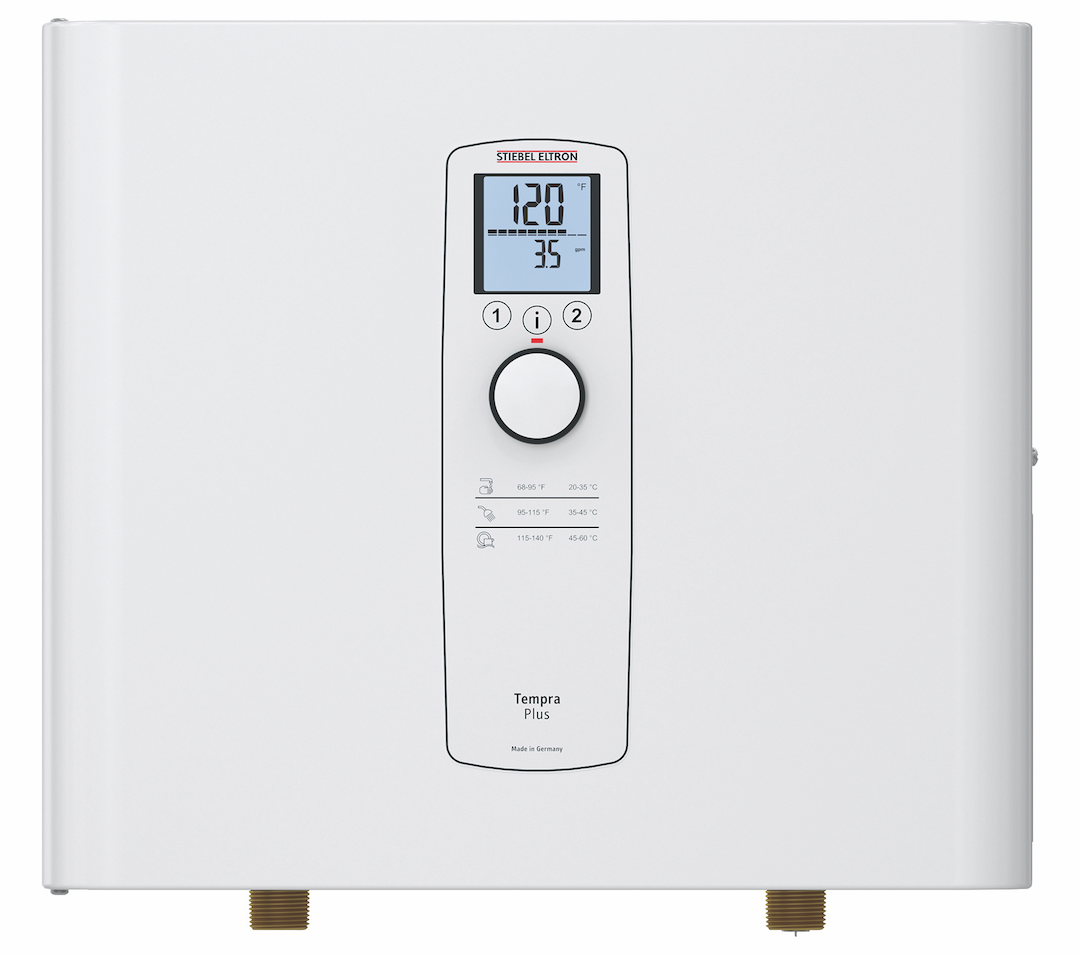 Stiebel Eltron electric tankless water heater. Photo: Stiebel Eltron
Stiebel Eltron electric tankless water heater. Photo: Stiebel Eltron
Related Stories
| Apr 26, 2019
Organized Living Offers ‘Century Gray’ Product Finish for Multifamily Storage Systems
Organized Living releases new color option for apartment and condominium storage systems.
Multifamily Housing | Apr 23, 2019
Recharging Edison’s batteries
America’s greatest inventor would have appreciated this project team’s ingenuity and persistence.
Multifamily Housing | Apr 17, 2019
Multifamily real estate trends for 2019 and beyond
Boomers are on the move and Millennials are seeing upward mobility, but issues with affordability and housing product mix persist.
Multifamily Housing | Apr 16, 2019
Multifamily rentals are still alive and kickin’
Apartments are being built, and in goodly number. But not enough of it is affordable.
Multifamily Housing | Apr 12, 2019
NYC officials partner with nonprofit to build modular affordable housing
Thorobird and BACDYS partner with Brooklyn’s FullStack Modular on project.
Multifamily Housing | Apr 11, 2019
St. Augustine Terrace brings affordable housing to the Bronx
Magnusson Architecture + Planning designed the building.
Multifamily Housing | Apr 8, 2019
Priced to sell: DUMBO condo development offers starter units in luxury setting
Designed by ODA New York, 98 Front Street will be loaded with amenities like a salt water pool, co-working spaces, and indoor and outdoor fitness centers.
Reconstruction & Renovation | Apr 5, 2019
Historic Corrigan Tower in Dallas becomes 1900 Pacific Residences
The 18-story Corrigan Tower in the Dallas’s historic downtown district is now a thriving 150-unit apartment residence community.
Multifamily Housing | Apr 3, 2019
Multifamily rent growth hits two-year high in February, rising 3.6%
A survey of 127 major U.S. real estate markets by Yardi Matrix shows no signs of slowing for multifamily rental demand.
Multifamily Housing | Apr 3, 2019
New multifamily development rises in Summerville’s Nexton mixed-use community
The new complex offers easy access to I-26.




